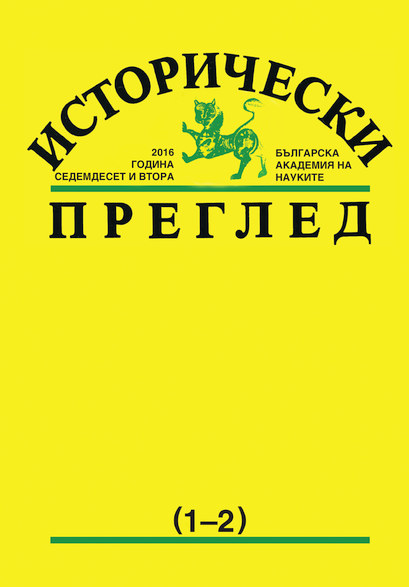Празникът на освобождението в българския национален календар
The Day of Liberation of the Bulgarian National Calendar
Author(s): Svetlozar EldarovSubject(s): History, Cultural history, Political history, Social history, Modern Age, Recent History (1900 till today), Special Historiographies:, 19th Century, Pre-WW I & WW I (1900 -1919), Interwar Period (1920 - 1939), WW II and following years (1940 - 1949), Post-War period (1950 - 1989), Transformation Period (1990 - 2010), Present Times (2010 - today), The Ottoman Empire, Between Berlin Congress and WW I
Published by: Институт за исторически изследвания - Българска академия на науките
Keywords: Bulgaria; National Day; politics; history;
Summary/Abstract: In 1990, The Day of Liberation of Bulgaria from Ottoman Yoke was proclaimed a national holiday, which is honoured on 3 March. On this date (19 February after the old Julian calendar), in 1878, the Peace Treaty of San Stefano was signed, which put an end to the Russian-Turkish War. A quarter of a century already, instead of playing the function of a symbol of national unity, this national holiday turns into an arena of acute confrontation between the political powers in the country, polarized between euroatlantism and russophilia. The retrospective overview of the commemoration of this holiday of the Bulgarian national calendar since 1878, provided by the paper, reveals that it has always been so. During each relatively detached period of Bulgarian historical development, the holiday on 19 February/3 March has always been used as an instrument to split Bulgarian society and State between East and West.
Journal: Исторически преглед
- Issue Year: 2016
- Issue No: 1-2
- Page Range: 5-23
- Page Count: 19
- Language: Bulgarian
- Content File-PDF

